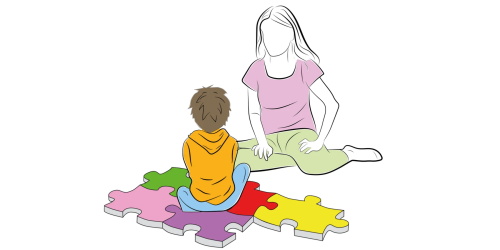Parenting in an Inflation Crisis: Are We Failing Our Kids Financially?

Inflation, like an invisible storm, has silently altered the rhythm of our daily lives. From the price of a head of cabbage in the supermarket to long-term plans for our children’s education, it affects every choice we make. While the pandemic has passed and the economy appears to be gradually recovering, the notion that "the broader economic climate is tough" remains a shared reality. Whether you’re an entrepreneur or an office worker, everyone is hustling for a living—and raising children has become one of the most challenging tasks in this storm.
The Weight of Rising Prices: Budgeting Becomes a Daily Struggle
The most noticeable impact is how quickly money seems to disappear. Prices for vegetables, fruit, and meat keep climbing, and the cost of housing, transportation, and utilities continues to rise. For families reliant on fixed incomes—especially retirees—pension purchasing power is shrinking, making daily life increasingly tight. Prices are rising, incomes are stagnating, and investments are uncertain. Many families are being forced to reevaluate both their everyday spending and long-term plans.
Elite Education Dreams Are Slipping Out of Reach
In this economic climate, sending a child to a good school has become a high-pressure goal for many middle-class families. Take New York City as an example: top private school tuition has surpassed \$60,000 a year—an increase of more than 5% from previous years—and that doesn’t even include extra costs like field trips or extracurriculars.
In Canada, recent data shows that the average cost of raising a child from birth to age 17 has risen to CA\$281,880. Yet Canadian household income is significantly lower than that in the U.S., making child-rearing not just “expensive,” but “nearly unaffordable” for most families.
What’s more concerning is that this figure doesn’t even cover college tuition, weddings, or helping with a down payment on a home. Over the past 40 years, U.S. college tuition has increased by 169%, while the income of young adults (ages 22–27) has only grown by 19%. The old belief that young adults could become independent at 18 is, for many, no longer realistic.
Economic Stress Is Undermining Parental Presence and Parenting Quality
It’s not just that the money isn’t enough—time isn’t either. To maintain their family’s standard of living, more and more parents are working overtime or juggling side jobs, leaving less time to spend with their children. Financial stress drains energy and contributes to anxiety, irritability, and even emotional distance, weakening family bonds. Under pressure, parenting styles may become either overly anxious or overly permissive. Communication between family members grows strained, and the warmth of family life is often the first casualty.
In wealthier families, children can easily enroll in extracurriculars and summer camps, enriching their development. In lower-income households, these experiences may be out of reach. Children may miss out on school trips or social events due to financial constraints, feeling isolated and developing a sense of inferiority. This invisible divide widens the gap between socioeconomic classes and gradually shapes children’s life paths.
Have We Really “Failed” Our Children?
The word “fail” carries a heavy emotional weight—but it’s worth examining. In the face of inflation, many parents simply can’t afford to provide the best for their kids, at least not by traditional standards. But does this mean we’ve failed their future?
Not necessarily. Parenting isn’t just about money. The true foundation of a family lies in love and communication, in respect and understanding. Children raised in homes filled with support, warmth, and care tend to be more resilient and creative. Financial wealth can’t replace emotional security, and true parenting ability can’t be measured by the size of a bank account.
Creating Infinite Possibilities with Limited Resources
In today’s economic landscape, compromises are inevitable—but that doesn’t mean quality parenting is out of reach. Families can build nurturing environments in many different ways:
- Build strong parent-child relationships: What kids need most isn’t luxury—it’s emotional support. Take time to talk, listen, and connect with them, creating an open, trusting home environment.
- Respect individuality and diversity: Don’t blindly chase elite education. Tailor your child’s path based on their interests and strengths. Embrace a holistic, lifelong approach to learning.
- Leverage public resources: Libraries, museums, science centers, and parks—these often free or low-cost spaces can open doors to knowledge and exploration.
- Foster independent learning: Encourage curiosity, problem-solving, and intrinsic motivation. These soft skills will matter far more in the long run than rigid, top-down instruction.
Crisis May Also Spark New Hope
Economic hardship is daunting—but it also pushes us to reconsider what parenting truly means. Sometimes, difficulty brings families closer together and reminds us of the core values that matter most.
Children don’t necessarily need the most expensive school—but they do need the warmest home. No matter how chaotic the world becomes, a loving family and parents who are present and supportive will always be their safest harbor. With dedication and creativity, we can turn limited means into unlimited opportunities for growth.
Yes, raising children in times of inflation is undeniably harder. But as long as our love and wisdom remain intact, we have not failed our children.
Recommended for you:







